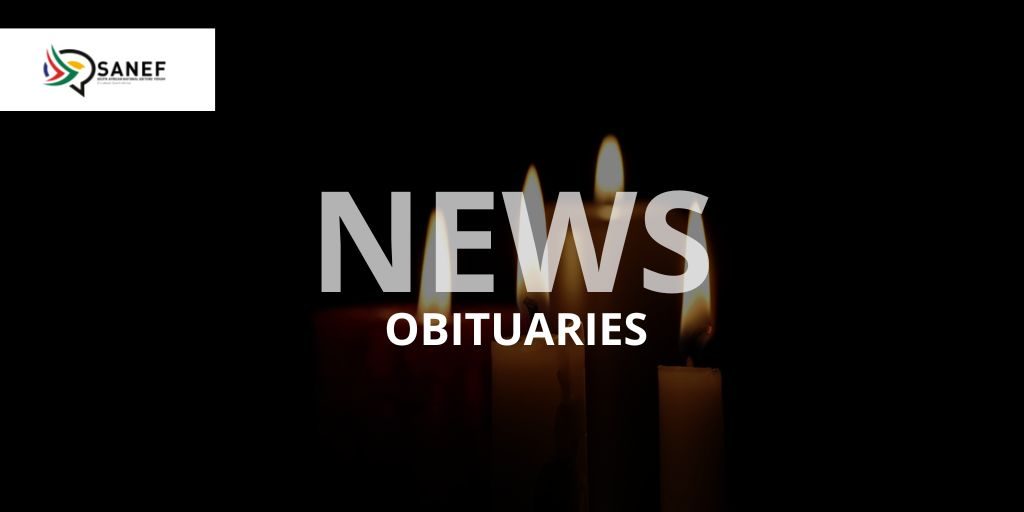Sanef Mourns the Death of Veteran Journalist and Author, James Clarke
Veteran Journalist and author, James Clarke, died aged ninety on Friday, May 17, after an earlier stroke developed complications.
Peter Sullivan, retired Star Newspaper editor described James Clarke as a “humorous columnist, a fine conservationist, and one of South Africa’s first environmental activist”.
Born in London and educated in Staffordshire, he started his career as a tea boy on a Birmingham daily newspaper. “There he broke so many cups they made him a reporter,” according to Clarke in his humorous blog.
After causing much mischief as a journalist in England, Clarke came to South Africa in 1955 as a reporter for The Star in Johannesburg. In 1961 he covered the Sharpeville Massacre and got in trouble with the police. He fled with his family to New Zealand where he became news editor of that country’s largest newspaper, NZ Truth.
He became homesick for South Africa and returned. He became the news editor of The Star. He later became interested in natural history, geology, energy, and cultural history authoring several books in those areas.
He also became famous for his longest-lived newspaper humour column, Stoep Talk. He authored more than twenty books, from the 1968 bestseller “Man is the Prey” – a personal investigation into the methods and motives of man-eaters and man-killers – to taking editors cycling each year on the “Tour de Farce” and authoring a book called “Blazing Saddles – The Truth Behind the Tours de Farce.” Clarke also co-founded the Endangered Wildlife Trust (EWT).
Sullivan said: “With The Star’s help he created sufficient public protest to stop the National Party government from mining the Kruger Park and putting a railway through it. He was much loved, and he will be sorely missed.”
Clarke also developed a particular interest in environmental matters, palaeo-anthropology – the study of man’s origins – and accompanied on field expeditions with some of the great names in palaeo-anthropology – Raymond Dart, Phillip Tobias, Richard Leakey, James Kitching and Washington University’s Glenn Conroy.
Hopewell Radebe former student of Clarke said: “As an Argus School of Journalism cadet in 1994, Clarke was the first senior journalist to predict that environmental and climate change reporting would be a niche craft for journalism at the turn of the century.”
“He talked about water shortage and prolonged droughts. He also warned that while journalists will cover a natural disaster at least once in their lifetime, our generation will soon frequently report depressing environmental disaster-related stories on climate change,” Radebe said adding that Clarke was an insightful and knowledgeable journalist.
George Claassen professor in science communication and media ethics at the Department of Journalism, Stellenbosch University said Clarke was an example of what the force journalism can be to make the public aware of why knowledge of science is imperative to understand our world.
“When we presented the first science journalism short course at Stellenbosch University’s journalism department in 1994, James Clarke was one of our keynote speakers on climate change and environmental journalism with Ellen Ruppel Shell of Boston University, one of the doyennes in science journalism,” Claassen said.
He said Clarke was a leader in the field and in its good old days of excellent journalism, The Star gave him a platform to educate the readers about the dangers of neglecting the protection of the environment.
“A great pioneer in science journalism, a tragedy that his pursuit of quality science reporting is now neglected so much. Where are the leading South African environmental reporters besides Elise Tempelhoff and Jorisna Bonthuys?”
Claassen said it was time to establish an environmental reporters benchmarked on James Clarke’s example, and to give science journalism its rightful place in our media. The politics of the future will centre around science.
SANEF extends its heartfelt condolences to her family, friends, and the entire media fraternity during this time of deep loss.
Note to Editors:
The South African National Editors’ Forum (SANEF) is a non-profit organisation whose members are editors, senior journalists, and journalism trainers from all areas of South African media. We are committed to championing South Africa’s hard-won freedom of expression and promoting quality, ethics, and diversity in the South African media. We promote excellence in journalism by fighting for media freedom, writing policy submissions, research, and education and training programmes. SANEF is not a union.
For more information, please contact:
- Sbu Ngalwa – SANEF Chairperson (073) 404-1415
- Nwabisa Makunga – SANEF Deputy Chairperson (082) 555-1972
- Dr. Glenda Daniels – SANEF Secretary-General (083) 229-9708
- Tshamano Makhadi – Treasurer-General (082) 223-0621
- Makhudu Sefara – SANEF Media Freedom Chair (079) 177-2134
- Katy Katopodis – SANEF Wellness and Safety Chair (082) 805-7022
- Judy Sandison – SANEF KZN Convenor (082) 571-3334)
- Rochelle De Kock – SANEF Eastern Cape Convenor (072) 969-8028
- Reggy Moalusi – SANEF Executive Director (071) 682-3695




